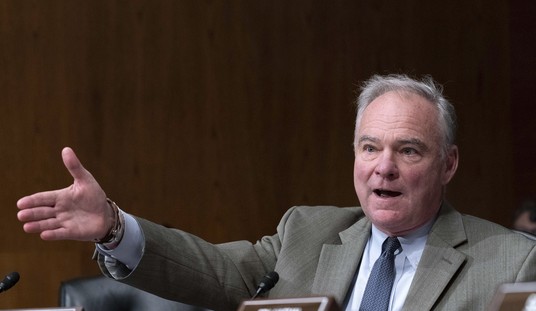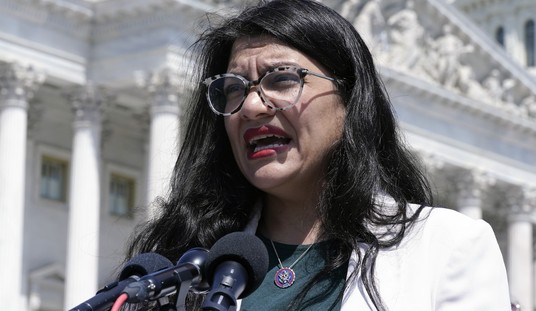[This article first appeared at Politix.com.]
Recently Chelsea Manning was sentenced to 35 years, Edward Snowden has been indicted, and Wikileaks is the focus of a movie called “The Fifth Estate.” All of this lends itself to a conversation on whether those who leak information are whistleblowers or traitors.
When are leakers branded as traitors, and when do they get a pass?

It’s often the case that when information is leaked that makes the Administration and intelligence community look bad, then the leaker is immediately called a traitor. But when the leak causes irreparable harm to US national security, too often those leaks are almost ignored by the popular media.
Leaks that attract public attention usually present information that is important for Americans to know, involving serious public policy questions. As a democratic republic, the United States has always struggled with protecting national security while being transparent and open to the political process.
In some of the most famous leak cases, the leaks caused political damage but it was unclear if they were actually dangerous to national security. In these cases, some political operatives immediately branded the leakers as traitors.
In 1971, Daniel Ellsberg released a 7,000 page document on the Pentagon’s internal history of the Vietnam war (a document which he generated) and a document which has clear public policy implications for Americans to know about in the wake of an ongoing war – which is to say that the documents demonstrated how policy-makers were very clearly misleading the American public on the Vietnam War for the previous decade – rather than the documents really providing actionable information for our enemies to use. The fact that it couldn’t be proven to cause serious harm was one of the main reasons why the Supreme Court ultimately allowed the New York Times to publish these materials. But it was embarrassing and made the administration look extremely bad. At the time many called Ellsberg a traitor and the Nixon Administration launched a personal vendetta against him.
This excerpt is by Egil Krogh, head of the Special Investigation Unit:
President Nixon had told me he viewed the leak as a matter of critical importance to national security. He ordered me and the others, a group that would come to be called the “plumbers,” to find out how the leak had happened and keep it from happening again. Mr. Hunt urged us to carry out a ‘covert operation’ to get a ‘mother lode’ of information about Mr. Ellsberg’s mental state, to discredit him, by breaking into the office of his psychiatrist, Dr. Lewis Fielding.
Ultimately the government bungled the case such that the charges against Ellsberg had to be dropped.
In 2005, the New York Times published a story on the NSA’s warrantless surveillance program under Bush. At the time many Republicans called those at the New York Times traitors and some called for prosecutions. President Bush sought an injunction to stop publication, which led the Times to publish early. Those revelations had clear public policy implications, and led to the passage of the FISA legislation with the goal of reigning in warrantless surveillance through the FISA warrant system.
In 2010, Chelsea (Bradley) Manning released over half a million classified US diplomatic cables, war logs from Afghanistan and Iraq and files on Guantánamo detainees. Some of the documents may have harmed US national security. But the other effect of the leaks was to embarrass US officials, as the leaked documents showed how poorly Afghanistan is really proceeding on the ground, how policy-makers were essentially lying about the credibility of our allies like Karzai. Perhaps most shockingly, a leaked video showed what appeared to be a cover-up of a helicopter gunning down a group of civilians including a journalist.
In the Manning case, these revelations had implications for public policy. Some wonder if it isn’t a coincidence that Manning was arrested and vilified as a traitor and charged with 22 offenses, including aiding the enemy, and sentenced to 35 years in prison.
Did Manning’s leaks harm US national security? It’s debatable.
In the case of Manning’s leaks to WikiLeaks, attempts were made to conceal the identity of US informants. However, the leaks ultimately provided the identity of some informants, and some have argued that it “put people in danger.” Army Chief of Staff Mike Mullen has directly stated that Manning and Julian Assange “might already have on their hands the blood of some young soldier…”
However, Brig. Gen. Robert Carr, who was in charge of responding to Manning’s leaks, has testified that no informants were killed as a result of Manning’s leaks.
Like Manning, Assange has been vilified and called a traitor by some policy-makers for the crime of releasing Manning’s leaked documents. Or potentially for the crime of inducing Manning to procure the documents (which has never been proven).

In the case of WikiLeaks and the Pentagon Papers, the actual harm to US national security or ongoing operations is attenuated. It may be true that the Wikileaks-disseminated cables and video indirectly harmed US national security, for instance through the un-redacted names of informants.
In other notable leaks, the harm from leaks is much greater. In the following leaks the actual harm was real, tangible and likely put us in danger.
Leaks That Caused Sever Harm to National Security
In 2012, the Associated Press’s reports on an Al Qaeda bomb plot exposed not only that the US had thwarted the plot BUT ALSO that we had custody of the bomb at Quantico…AND AP also revealed that the US had infiltrated the terror group with a human source operating within Al Qaeda in the Arabian Peninsula.
This type of source is essentially the holy grail of HUMINT (Human Intelligence) – a source inside an enemy organization. In this case he had been recruited by Al Qaeda to be the suicide bomber.
The Obama administration therefore considered the leak exposing him to be one of the most dangerous leaks to US national security. CIA Director John Brennan has called the leak “irresponsible and damaging,” while Attorney General Eric Holder said the story was the result of “a very serious leak, a very grave leak.”
So much so, that they sought and obtained court warrants for two months of call records of 20 reporters who were working on that story for the Associated Press.
LA Times reported the story as “Saudi-born Briton had gained the trust of terrorists in the Yemeni branch of Al Qaeda and helped foil a bomb plot, they say, but his work was cut short by Associated Press and newspaper reports.”
US officials claim that this disclosure compromised the informant who had earned the trust of hardened terrorists:
Intelligence officials hoped to send him back to Yemen to help track more bomb makers and planners, but the leak made that impossible, and sent Al Qaeda scrambling to cover its tracks, officials said.
They ultimately found the guy who led to this lead, an ex-FBI agent, just a few weeks ago. His name is Donald Sachtleben. When you search Donald Sachtleben in Google News, it comes up with only 469 news stories, many of them involving someone else. Edwards Snowden has close to 200,000 news stories – all about him. There are 3700+ news stories listed of Snowden with the word “traitor” somewhere in the piece. There are no news stories with Sachtleben with the word “traitor.”
To be clear, there are a difference between each of their actions: Snowden was deliberate in his disclosures and the actions of Sachtleben are still not entirely clear. But the impact of the Sachtleben leak was pretty terrible, yet has resulted in no condemnation in the media, and relatively minimal opprobrium from the legal system.
Sachtleben was ultimately sentenced 4 years for the leak and 8 years for two charges of child pornography. He got twice the time for child pornography than for giving up one of the most valuable sources in the war on terror.
As another example of real, demonstrable, harm to US national security, just in August, an Al-Qaeda and affiliates’ “conference call” appears to have been infiltrated by the NSA. The call allegedly involved Zawahiri personally. Zawahiri called for action in several Muslim countries against US embassies and US interests in the region, which led the administration to take the drastic step of temporarily closing our embassies across the Middle East. The fact that the US knew of some plot was evident to the public since we closed our embassies, and the Administration likely decided that it was better to reveal that fact and take steps to protect ourselves than to try to prepare without showing our knowledge.
But surely the fact that US intelligence was listening to their scrambled conference calls did not need to be made public. In the intelligence community they refer to this type of detail as providing actionable information on “sources and methods.” When that detail leaked, there were few calls for anyone to be arrested for leaking that detail, there was no discussion of who was a traitor, and yet we know that by that detail being published it compromised an extremely good source of intelligence.
Was the Snowden leak damaging to national security, or to political interests?
The New York Times recently found that according to their sources, the Snowden disclosures had minimal impact on how terrorists were communicating. Instead, the Times found that a leak by spy agencies themselves had caused much greater harm than anything disclosed by Snowden:
As the nation’s spy agencies assess the fallout from disclosures about their surveillance programs, some government analysts and senior officials have made a startling finding: the impact of a leaked terrorist plot by Al Qaeda in August caused more immediate damage to American counterterrorism efforts than the thousands of classified documents disclosed by Edward Snowden.
Since news reports in early August revealed that the United States intercepted messages between Ayman al-Zawahri…analysts have detected a sharp drop in the terrorists’ use of a major communications channel that the authorities were monitoring. Since August, senior American officials have been scrambling to find new ways to surveil the electronic messages and conversations of Al Qaeda’s leaders and operatives.
In the case of leaking the information about the Al Qaeda conference call, there is no clear public policy reason that appears to justify this information being leaked and published (the source of the leak is still unknown).
For many Americans, the jury is still out on Edward Snowden. While the programs that were exposed are clearly of public importance, there are major questions as to why Snowden didn’t go through the tools available to him to be a whistleblower before fleeing the country, whether he turned over classified documents to foreign intelligence, and to what extend the documents has he exposed have done more than provide information for public policy consideration but also may have compromised sources and methods or harmed US national security.
Americans are conflicted on whether Snowden is a whistleblower or something else, particularly given the recent evidence that he deliberately sought out employment with the public disclosure of confidential information as his apparent end goal. Some believe that seeking out the information to release makes Snowden a leaker versus a whistleblower. But clearly the fact that Snowden’s disclosures were embarrassing for the intelligence community and the Administration has been part of why many were so quick to condemn him as a traitor. But before policy-makers call him a traitor, shouldn’t they identify and prove the actual harm that was done by him?
Public Policy Implications
For leaks involving issues of public policy, the media is quick to narrow in on the personal details of the leaker, but the real question is, how does society react to the information itself? Americans can support or oppose Snowden’s actions, but now that we know about Prism and warrantless surveillance by the NSA, the question is whether this is what we want to be done in our name.
If you disagree with the dragnet NSA surveillance on American citizens, the Stopwatching.us coalition, of which I am a member, is having a rally in Washington, DC on Saturday October 26, 2013.
Overall, there should be one standard across the board rather than treating unauthorized disclosures of classified materials through a political lens. We want more information on what is being done in our nation for national security, particularly when the actions of our military and intelligence community may violate the law or lead to potential blowback. But when disclosures cause serious harm to US national security then they should rightfully be condemned.
These examples of leaking seem to show a disturbing trend where policy-makers are quick to condemn leakers that present important public policy questions, but remain largely silent when leaks are more damaging to US national security and lack any public policy justification.
Derek Khanna (@DerekKhanna and Facebook.com/derekkhanna) is the maverick former Republican staffer and civil liberties advocate whose op-eds on cell phone unlocking went viral in January. He is now a Yale Law Fellow, columnist, and policy expert, and leader in the campaign to legalize unlocking your cell.








Join the conversation as a VIP Member